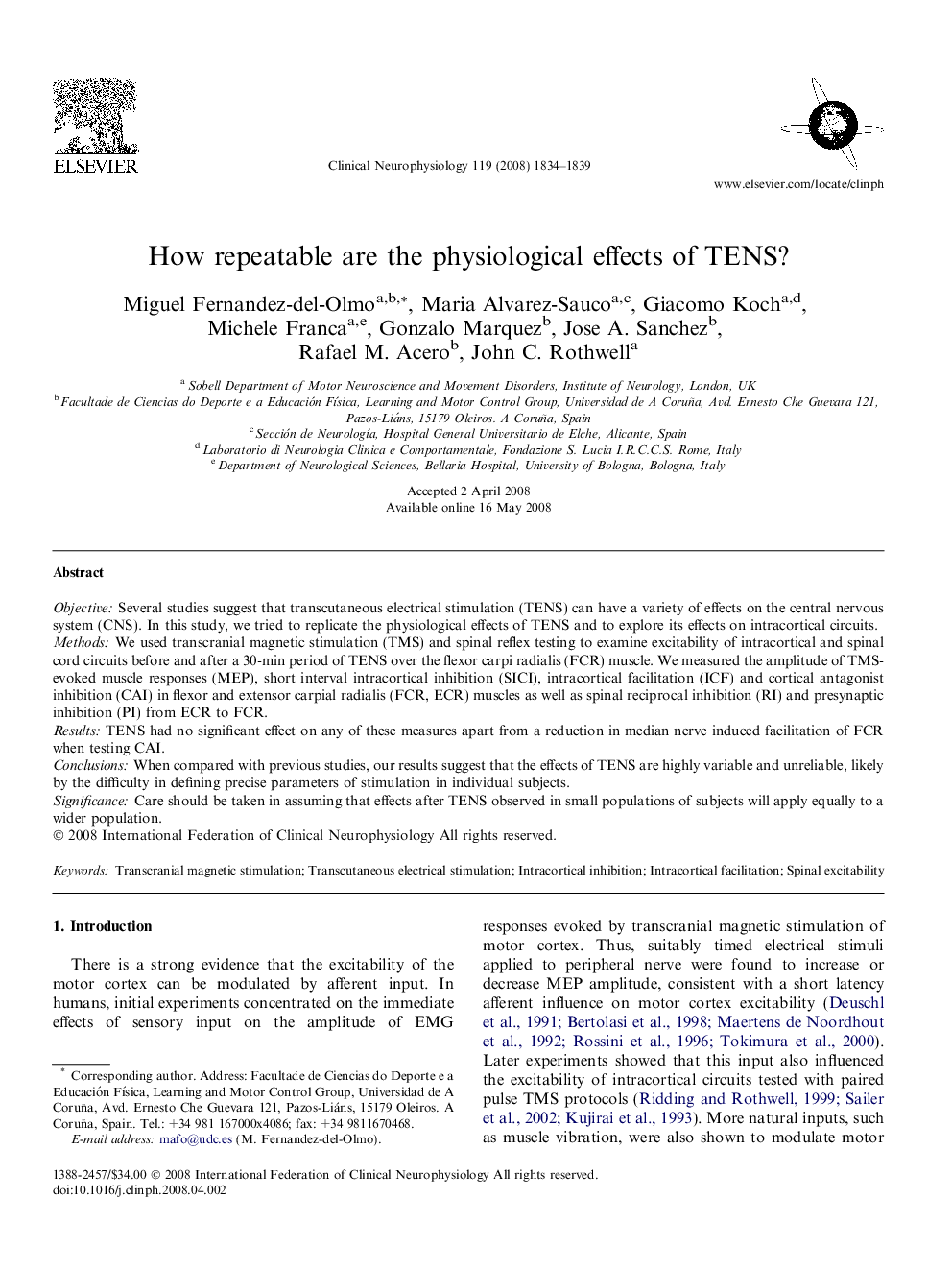| Article ID | Journal | Published Year | Pages | File Type |
|---|---|---|---|---|
| 3047752 | Clinical Neurophysiology | 2008 | 6 Pages |
ObjectiveSeveral studies suggest that transcutaneous electrical stimulation (TENS) can have a variety of effects on the central nervous system (CNS). In this study, we tried to replicate the physiological effects of TENS and to explore its effects on intracortical circuits.MethodsWe used transcranial magnetic stimulation (TMS) and spinal reflex testing to examine excitability of intracortical and spinal cord circuits before and after a 30-min period of TENS over the flexor carpi radialis (FCR) muscle. We measured the amplitude of TMS-evoked muscle responses (MEP), short interval intracortical inhibition (SICI), intracortical facilitation (ICF) and cortical antagonist inhibition (CAI) in flexor and extensor carpial radialis (FCR, ECR) muscles as well as spinal reciprocal inhibition (RI) and presynaptic inhibition (PI) from ECR to FCR.ResultsTENS had no significant effect on any of these measures apart from a reduction in median nerve induced facilitation of FCR when testing CAI.ConclusionsWhen compared with previous studies, our results suggest that the effects of TENS are highly variable and unreliable, likely by the difficulty in defining precise parameters of stimulation in individual subjects.SignificanceCare should be taken in assuming that effects after TENS observed in small populations of subjects will apply equally to a wider population.
